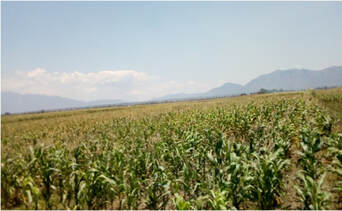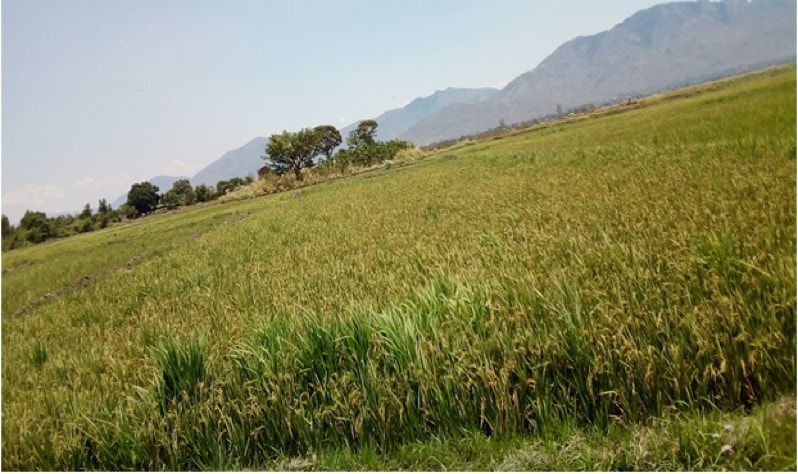Written by CorpsAfrica/Malawi Volunteer Ms. Margaret Magombo
Passing around Mpheta village in Domasi, one would forget that this is summer. This is the area where the Domasi scheme is located. It is a large chunk of land which is supporting the livelihoods of thousands of people. It is through the sweat of the locals that the large expanse of land is constantly green in and out of season.
Since my arrival at my site, I took it as my initiative to explore the area. Just this past weekend I considered visiting the Domasi scheme, which is found at the far end of my site. What I witnessed has clung to my mind and it is inspiring my imagination. The agricultural scheme that was pioneered by the Chinese government a couple of decades ago has formed the bedrock of economic activities in the area. I have learned that the scheme is the main producer of rice in Zomba and Machinga. Supported by the Domasi River, rice is cultivated twice alongside maize within the green belt. I remember wondering and asking recently where the large quantities of watermelons flooding the nearby markets are coming from. Through my weekend journey I had the answer to my curiosity.
Walking around the households surrounding the scheme all signs of self-sufficiency were too visible. One cannot complain of food insecurity in this part of Zomba. Standard iron thatched houses are a main feature in this area. I was really thrilled to see how nature is being harnessed for the advantage of man. I wish how people are using water in Mpheta could be a model in different parts of mother Malawi. It is an indisputable fact that this nation is blessed with countless rivers. Most of these rivers are not being used to the advantage of the locals. How I wish relevant stakeholders played the needed role in turning these feely given precious pearls for the support of standard living.
My weekend adventure, has helped me in debunking the myth that rural dwellers are a lazy bunch of people. As one wonders how can a lazy body turn a summer landscape into a winter one? And how can the same busy body feed thousands? Rural masses deserve a push in the right direction. All they need is to be set into what they know best by providing them the needed structures in the right place. What they need to be given is the skill to fish not a fish on a platter. It is imperative that we begin to view our brothers and sisters living in rural areas with sustainable perspective. It is high time we stop using the poverty and lack of the rural masses as a resource to our advantage!


